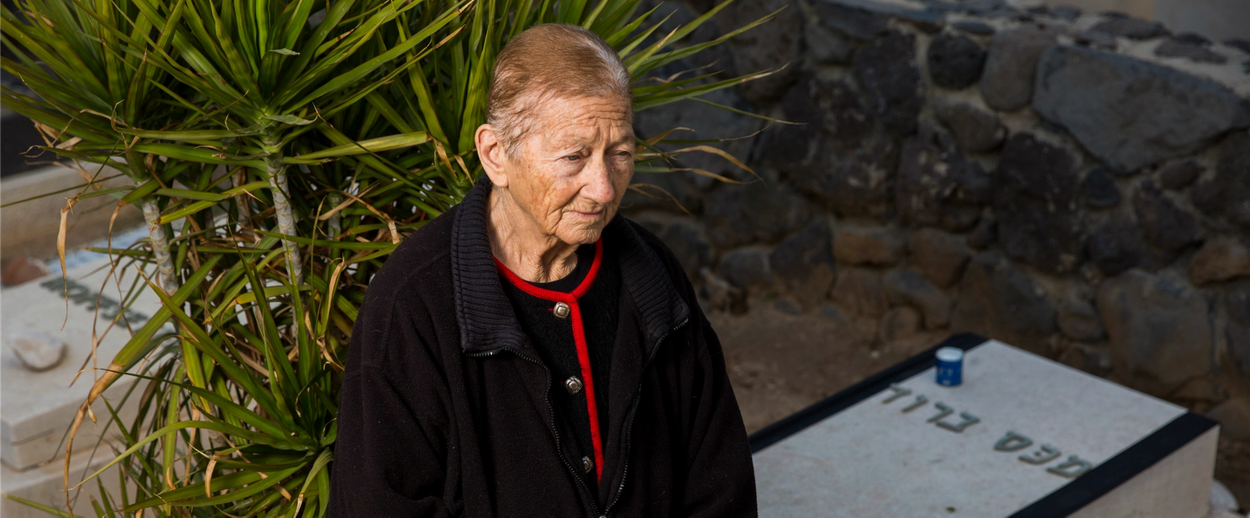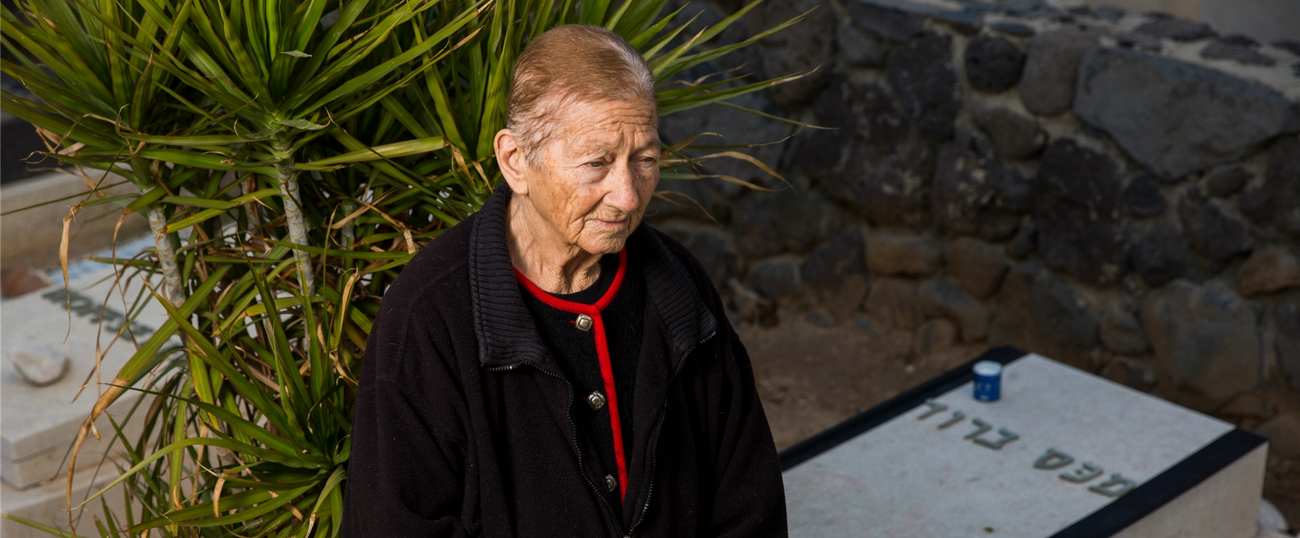The Trial of Kafka’s Last Heiress
Kafka wanted his papers burned but they wound up in the hands of Eva Hoffe, placing her in the middle of an international legal battle.




Eva Hoffe, who single-handedly waged the most high-profile trial over cultural heritage in recent Israeli memory, died in Tel Aviv on Aug. 4, age 84.
I came to know Eva two years ago, just as her eight-year battle, dense with dilemmas not only legal, but ethical and political, was reaching its climax in Israel’s Supreme Court. At stake: a trove of manuscripts that promised to shed new light on the uncanny world of Franz Kafka, the writer who etched the 20th century’s most indelible fables of disorientation, absurdity, and faceless tyranny—the rare writer whose name became an adjective.
Kafka’s friend, editor, and champion Max Brod, an acclaimed figure in Central European cultural life, betrayed the writer’s last wish to burn his papers. Instead, he rescued them from Prague and brought them to Palestine in 1939, where he gave them to his secretary Esther Hoffe, Eva’s mother.
From the outset, the contest pitted Eva’s private property rights against the public interests of two countries obsessed with overcoming the traumas of the past: Did the literary estate belong to the National Library of Israel? Or would it be best housed at the German Literature Archive in Marbach, Germany? Does Kafka’s beguiling writing belong to German literature or to the state that regards itself as the representative of Jews everywhere?
Before the hearing, held on June 27, 2016, Eva expressed a pessimism inflected with hope. “My name is Hoffe [German for ‘I hope’], after all,” she told me. Six weeks later, the Supreme Court rendered its unappealable verdict. A panel of three judges unanimously upheld the lower courts’ decisions and ruled that Eva must hand over the entire Brod estate, including Kafka’s papers, to the National Library, in return for which she would receive not a single shekel of compensation.
Normally, a will allows the heir to understand her place in the generational order of things. Eva insisted that the disputed papers connected her as much with Brod—a father-figure who had helped raise her—as to her mother. “You must understand that Max was a member of our family,” she told me.
For some Israelis, the ruling shored up a profound pride in the Diaspora’s “cultural assets,” as David Blumberg, chairman of the board the National Library put it. Jerusalem sees itself as the rightful heir and home to the cultural products of the Jewish Diaspora.
Eva took a different view. A day after the ruling, she told me that she considered the verdict a result of “the will to appropriate rather than the will to adjudicate.” In defeat, a form of sublimated self-fury soon awakened within her. She instructed her hairdresser to shave her head. In a convulsion of mourning? In a debt to the dead? “If I went on hunger strike,” she said, “they would just force-feed me.”
Earlier this year, Eva was diagnosed with cancer. Shortly before her death, she fell and broke her hip. Losing the will to live, she starved herself. Without a burial plot of her own, she was buried on top of her mother. “Her mother swallowed Eva up in death as in life,” one of Eva’s friends said. Like Kafka, Eva never married. She is survived by her two nieces. The contents of her will are not yet known.
The last time we met, at her favorite café on Dubnow Street, her hair had grown out somewhat, and she seemed somewhat buoyed by an increase in the Holocaust reparations she received monthly from the German government. But a film of melancholy seemed to coat her intelligent blue eyes. Speaking as though she regarded herself as the sum of her legal misfortunes, she compared the endless deferrals of her case to those encountered by Joseph K. in Kafka’s unfinished novel The Trial (which but for Brod would never have seen the light of day). In both cases, she felt, an arbitrary system had insinuated itself into places both public and private.
Eva Hoffe moved in Tel Aviv’s intellectual circles—counting the Berlin-born Hebrew poet Natan Zach and the artist Menashe Kadishman among her friends—but she did not pretend to be an intellectual herself. She conceded to me that she had not read many of Kafka’s books. “What do I want from Kafka?” Eva told me. The famous name had brought her no luck. “Kafka for me has been a disaster. They mixed Kafka into Brod’s estate in order to take it all away from me.”
Like the man from the country in Kafka’s parable “Before the Law,” Eva remained stranded outside the door of the law. She did not understand the intricacies of legal reasoning, but she did understand the sentence: Her inheritance was the trial itself. Paradoxically, she had inherited her disinheritance; she possessed only her dispossession.
After lunch, in the heavy humidity of a Tel Aviv midsummer’s afternoon, Eva and I walked along Dubnow Street. She wore a loosely draped skirt and a T-shirt printed with an image of Marilyn Monroe and carried three plastic bags of photos and documents that she wanted to show me.
I mentioned coming across an interview Brod gave to the Israeli paper Maariv in 1960. He had told the interviewer: “If Kafka had merited to reach the land of Israel, he would have created works of genius in Hebrew!” I added that in her novel, Forest Dark, the American writer Nicole Krauss imagined just such a counterlife for Kafka. Krauss’ narrator discovers that Kafka came to Palestine between the World Wars, settling there in obscurity.
Eva had never met Kafka. Born in Prague in 1934, a decade after Kafka was buried in that city’s Jewish cemetery, she was 5 years old when she fled the Nazi-occupied city together with her parents. But now Eva reacted with incredulity. “Kafka wouldn’t last a day here,” she said, kicking the hem of her threadbare skirt against her shins.
This piece is adapted from his forthcoming book, Kafka’s Last Trial, due out next month from W.W. Norton.
Benjamin Balint, a writer living in Jerusalem, is the author ofRunning Commentary: The Contentious Magazine That Transformed the Jewish Left Into the Neoconservative Right.